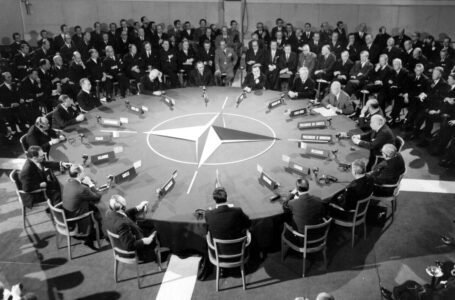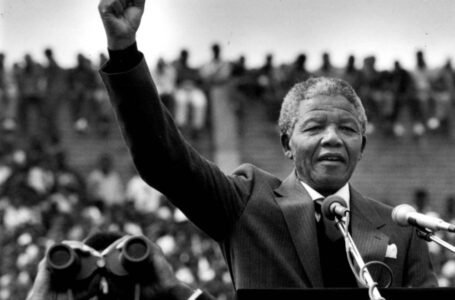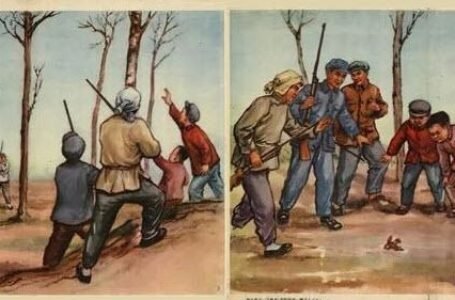Anandibai Joshi: The First Female Doctor of Western Medicine in India
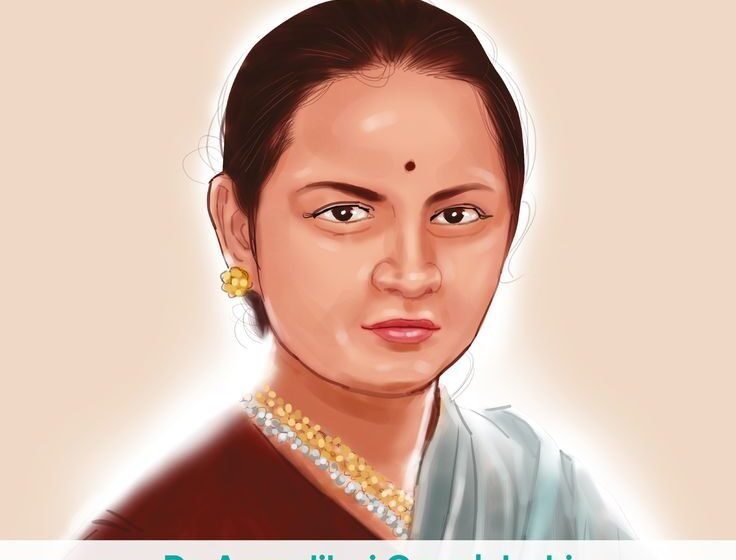
During the period of women being treated as household workers, think of about the men’s dominance. The woman of house must not got any respect and her desires remained unfulfilled. Woman who do any works other than been in her home were considered as sin and was not very well received among her village. If we see this as men dominance over the society, it is clearly not; it was both women and men. One woman suffers and got hurt, but later she does not made the way for the next woman of her house to not suffer.
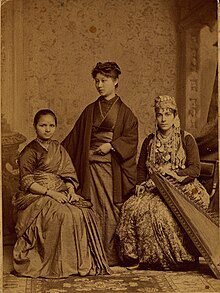
It was the same woman who got hurt treat the next woman like she had and says it was society who does not accept. It was the society that does not care about any women empowerment back then. No society would be the same like the past; it breaks the barrier and overcome it. Slowly country like became modernized. Here we see about Anandibai Joshi, a woman who broke all the barriers and achieved her dream with the man of her life beside.
Personal Life of Anandibai Joshi:
Anandibai Joshi was born on 31st March 1865 in Kalyan City, Bombay Presidency (Present-day Maharashtra). Her birth name was Yamuna and was the fifth of Nine Children. She belonged to the family of Chitpavan Brahmin Marathi Family. She was married at the age of nine and it is quite common during those days. Her husband name was Gopalrao Joshi. He was a widower and almost twenty years senior to Anandibai. It was only him, who changed her birth name Yamuna to Anandibai. Gopalrao was a intensified thinker and he supported the women’s education, which was very unusual those days.
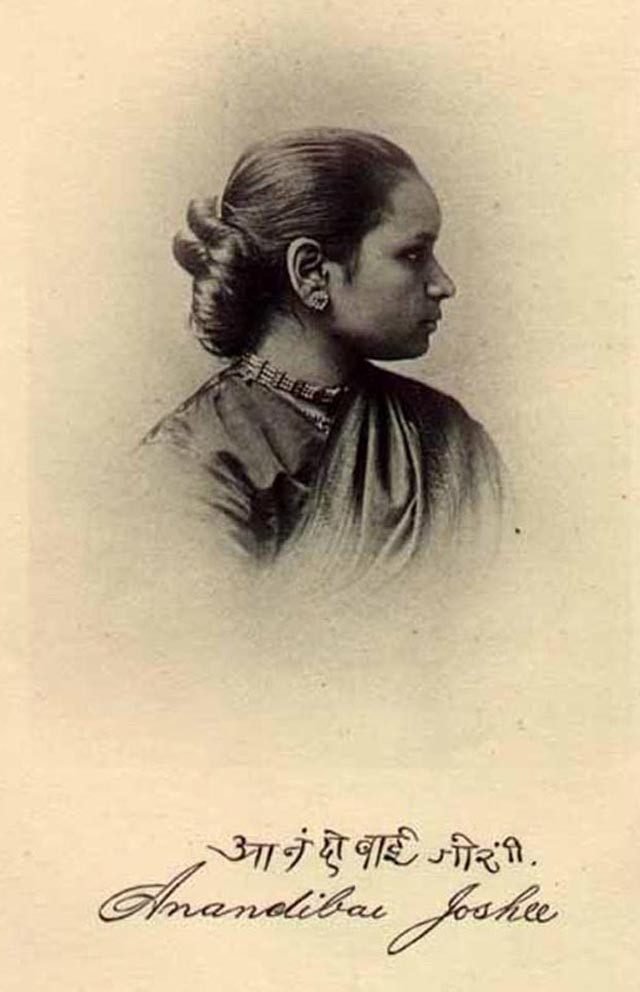
When Anandibai was fourteen, she gave birth to a boy and due to the lack of proper medical care, her son died within the 10 days of his birth. This made a big change in her life and paved way for her to study medicine. With the help of her husband, she was enrolled in missionary schools, but it does not work out. So they moved to Calcutta (present-day Kolkatta). Anandibai learned to read and speak Sanskrit and English in Calcutta.
Education and life at U.S.:
When she lost her child, she was devastated. Still she thought about the circumstances that happened in her country. Not only she, other women also not willing and comfortable with the male physicians for the medical care provided. It is also India lacked of proper medical care and treatments. With all due in her mind, she decided to study western medicine to give the proper medical aids for her country people, especially women. With soon efforts, Gopalrao sent a letter to Royal Wilder, an American Missionary. In that letter, he requested about any suitable post in the U.S. for her wife. That letter was published in Princeton’s Missionary Review by Wilder. A resident of Roselle, New Jersey, Theodicia Carpenter read the review and was impressed by a husband who supports his wife’s desire to study medicine. She wrote to Anandibai and soon they both become close friends. Later in 1883, it was Theodicia host Anandibai at her stay in U.S.
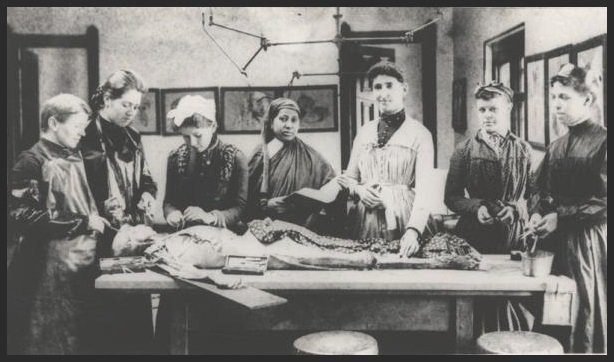
With the support of the Carpenters, Anandibai got an admission to Women’s Medical College in Pennysylvania. She was 19 when she began her medical training. She finished her medical degree in two years. This became a huge achievement and success that made the Indian women to look after her life. During her course, she went under severe difficult to study in the college and she had to be reserved about her feelings till the end to finish her studies. While in America, she temporarily forgot Marathi while mastering in English.
American weather and an unfamiliar diet made her health worsen. She was already ill when she came from India. With the tests made and discovered she contracted tuberculosis. In the meantime, she finished her Doctor of Medicine (MD) in 1886. She wrote a thesis in the topic of “Obstetrics among the Aryan Hindus”. This thesis has the references from both the Ayurvedic texts and the American Medical text books. Queen Victoria sent her a congratulatory message on her graduation.
Relationship with Gopalrao Joshi:
Before her educational path, one day Anandibai was in kitchen cooking along with her grandmother and it was found by Gopalrao that she was cooking. This made him a big rage and he fought with Anandibai for her act instead of studying. This incident was considered as a biggest cultural change of man being supportive of women’s education out of the regular standards. Though she and her husband had a huge age difference, they shared a grateful relationship. She was always grateful for her husband who came out of ordinary social norms to build her wife as wonderful and respectful women by helping her in getting educations.
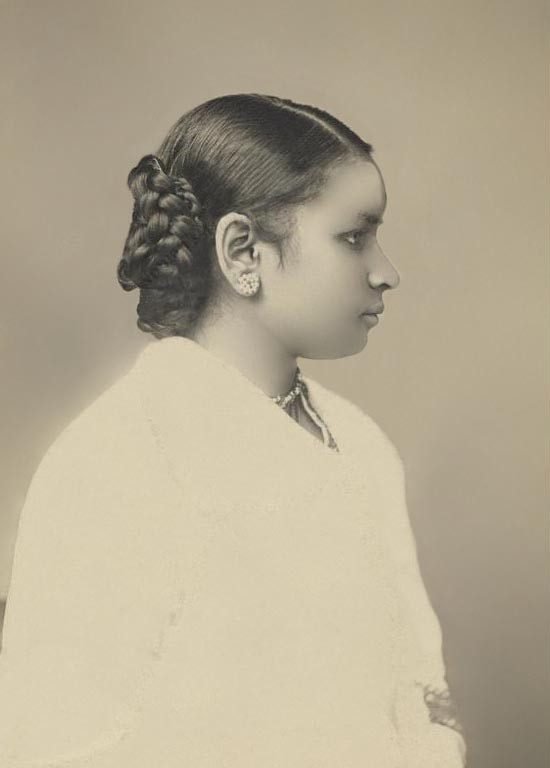
Anandibai gained maturity and wisdom during her stay America and had a keen focus in her studies. She also can teach very easily in the way the audience understands. Anandibai was not only the first women to become a doctor in Western medicine; she was also a feminist and nationalist. Though she was not a proper scientist, she had researched and wrote about the matters of public health while she was a student. She was very much ardent in her choice of being a woman who had to help another woman during her illness. It was opposed by many in India, a woman to go out of her house and country to get education but she made her choice clear with her husband in side.
Anandibai’s aftermath from U.S.:
Anandibai return to India in the late 1886 and she received a grand welcome. She was appointed as the physician in charge of the female ward of the local Albert Edward Hospital in the Kolhapur state.

In the meantime, Anandibai’s health got even worsens. She was fatigued and felt constant weakness. She got medicines that were sent from America still no results of any improvement in her health. Her long battle from tuberculosis came to an end on 26th February 1887 when she was at the age of 21. The loss of a perfect woman was mourned throughout the country.
Her closeness with Theodicia Carpenter lasted till her death and after her death. Anandibai’s ashes were sent to Theodicia to bury in their family cemetery at the Poughkeepsie Rural Cemetery in New York. In the era of woman being not allowed out of house, Anandibai broke all the customs and went out independently; even her ashes stayed out of the regular norms. The inscription of Anandibai’s cemetery states that, “First Brahmin Women to leave India to obtain an education”.
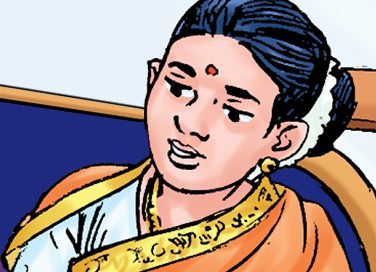
Legacies:
- In 1888, American feminist writer, Caroline Wells Healey Dall wrote Anandibai Joshi’s biography.
- Doordarshan, Indian public service broadcaster aired a Hindi series based on Anandibai’s life in the name of “Anandi Gopal”.
- Shrikrishna Janardhan Joshi wrote a fictional novel of Anandibai’s life in Marathi: Anandi Gopal.
- The Institute for Research and Documentation in Social Sciences (IRDS), a NGO from Lucknow has been awarding the Anandibai Joshi Award for Medicine in honour of her early contributions in advance medical science in India.
- Government of Maharashtra established a fellowship in her name for young women working on Women’s health.
- In 2017, a Gujarati play titled Dr. Anandibai Joshi, directed by Manoj Shah got premiered at the National Centre for the Performing Arts.
- In 2019 an Indian biographical film on her life: Anandi Gopal was released by Sameer Vidwans.
